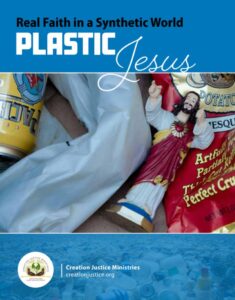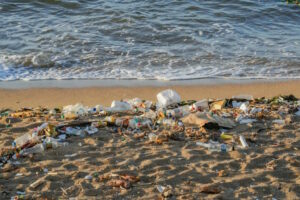Plastic is everywhere. We eat and drink from it, make clothes from it and buy products wrapped in it. Once these things become trash, they don’t just disappear. Instead, they stick around for hundreds of years in landfills or the natural environment. Chemicals sourced from fossil fuels make plastic, and both plastic production and disposal contribute to greenhouse gases.
Resolution 1217 on the Use of Plastic was passed at General Conference in 2024.
Local churches are asked to avoid plastic where possible and to reduce their use in all their activities. Individuals are asked to commit to similar personal actions. Single-use plastic items such as dishes, coffee cups, or bags should be avoided and replaced with items made of recyclable, preferably naturally occurring material or items that can be washed and reused.
Or as the common phrase goes: Refuse – Reuse – Reduce.
Is your local church …
- using plastic knives, forks and spoons? Can you switch to using silverware?
- using single-use plastic or polystyrene cups? Can you switch to washable mugs or glasses, and/or encourage people to bring their own.
- using polystyrene plates? Switch to washable plates, or if necessary paper plates (although we also want to reduce deforestation) or bamboo plates.
- using plastic straws? Can you stop offering straws?
- using single-use water bottles? Switch to jugs of water or use a water fountain or encourage people to bring their own water bottles.
Plastics Study

Creation Justice Ministries produced a study on plastics called Plastic Jesus: Real Faith in a Synthetic World for Earth Day 2024.
Everywhere we look in our culture you will find plastic. It surrounds our food, it makes up our technology and it is a standard element in our household items. Unfortunately, it is also overflowing from our landfills, floating in our waters and polluting our soil. More and more, you can even find it in our own bodies and those of other living creatures. Researchers have even found traces of plastic in breast milk. Despite the fact that we have learned the harms of plastics, we are steadily increasing our production of the material and integrating it into more and more items. Plastic is everywhere! One place where you will not find plastic, however, is in the Bible.
This resource helps congregations think more deeply about the ways that plastics impact our lives and God’s creation. It also equips people of faith to take actions to address this epidemic in faithful and practical ways.
A Few Ideas for individuals to avoid plastic
- Refillable water bottles
- Take your own hot cup to the local coffee shop – as a bonus, many stores offer a discount if you do this
- Carry a stainless steel straw
- Carry a portable utensil set – these could be reusable bamboo
- Carry bamboo or organic cotton shopping bags
- Carry organic cotton mesh produce bags
- Store food in glass containers and storage jars
- Use wax food wraps instead of plastic wrap
- Pack your sack lunch in organic cotton sandwich bags
- Avoid buying products in plastic bottle
- Use bars of soap
- Use shampoo and conditioner bars
- Use laundry detergent sheets
- Use toothpaste tablets
- Shop at your local refill store – find a refill store
Fact Sheets & research

The official Earth Day website has an article with 6 tips to avoid eating plastic in your own kitchen. They also have a campaign to end plastics with lots of resources including fact sheets, research, action and advocacy ideas.

Single use plastic items make up much of the trash in our oceans. If your church is in the Bay Area, then you might consider a field trip to the Monterey Bay Aquarium where there is an exhibit on the effects of plastic trash in the ocean. Learn more from the Aquarium website about how plastic pollution is affecting our oceans.